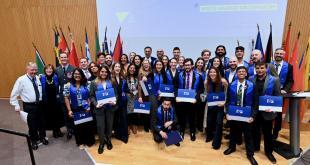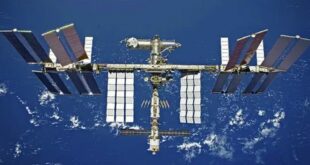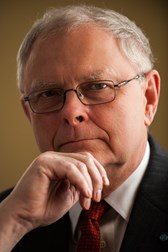
After seven fruitful years with the Secure World Foundation, Michael K. Simpson is retiring from his role as Executive Director. Dr. Simpson joined SWF as the Senior Program Officer in September 2011 following seven and a half years as President of the International Space University (ISU). SpaceWatch.Global’s Torsten Kriening was lucky enough to sit down and speak with Dr. Simpson on his very last day with the Secure World Foundation, an organisation that works with governments, industry, international organizations, and civil society to develop and promote ideas and actions to achieve the secure, sustainable, and peaceful uses of outer space benefiting Earth and all its peoples. Here, they discuss what has been achieved over the last seven years, future challenges and messages for the next generation.
How does it feel to be retiring from the Secure World Foundation?
It’s been a great seven years. The Secure World Foundation (SWF) is an extraordinary and unique foundation. We are an operating foundation. We work on space policy. We deal with this challenging notion of sustainable use of space. Over the last seven years I think people have gained respect not only for our point of view, but also for our capacity to listen. I think we have become an honest broker because we start off by listening to the different sides to an argument and then look for where common ground might already exist, where it might be created and where we can build or come to find cooperative solutions to space sustainability. It feels good to the extent that I think we have accomplished a lot.
The man who will succeed me, Peter Martinez, is as good as it gets. I have known Peter for a long time. He’s an ISU alumnus, did a masterful job as chairperson of the Long Term Sustainability of Space Activities Working Group in the UN COPUOS and I think this is the ideal journey for him to look at the guidelines he helped to shepherd through the UN and to use the SWF as one of the tools for helping governments adopt those guidelines and live by them.
Looking back over the last seven years, what has changed in space and what remains that bears your signature?
The DNA, if you will, of SWF is engagement with people who share a common view and increasing dependence on space technology to sustain modern lifestyles. We continue to identify the issues that can advance the impact of space on people whether it is in the developed worlds, in the developing world or in the emerging space community. We work very hard to identify those issues.
I would say that one of the issues that we have worked on a lot more in the last seven years than in the early stages of the foundation is commercial space. I came in with an unusual background, having a Ph.D. in law and diplomacy and an MBA, so I was really resonating with this growing private enterprise that aims to make a truly independent commercial contribution to the development of space. However, because of the DNA of SWF we knew that there were going to be questions around that. How do you create an environment in which business can succeed? That has sufficient rules? To know how to operate relative to its competition and to give it sufficient freedom for it not be choked in the earliest days of its set-up? For several years that was essentially my portfolio, working as executive director, but somewhat as a project manager.
Now we have the benefit of having a director of private sector activities, Ian Christiansen, who really has a business orientation but also shares our sense that this has to be done cooperatively. That evolution has done a lot for the foundation as a whole because it has increased the amount of input into our thinking about all of the issues that we deal with from UN and environmental security, space applications, spectrum allocations, to space security and in-orbit servicing and proximity operations. That extra input has broadened the base on which we are making decisions about issues we pursue and the opportunities that exist.
We got very involved in the space resource governance issue and we will carry that on in terms of developing resources in a way that doesn’t create a hostile gold rush but does recognise that there can be no benefit from resources offered without development. So we have got to find a way to do this where benefit is broadly shared.
What are the current topics the SWF is working on and where will the challenges lie in the near future?
We are certainly going to continue into the indefinite future working on sustainability issues such as how do we deal with a growing debris environment in orbit. How do we deal with increasing number of gigantic mega constellations? How do we manage space so that those ideas can thrive without imposing a price on the space assets of others? How do we deal with spectrum? The terrestrial and orbital demands on spectrum are becoming very competitive. I have some hope that using light for data transmission between satellites and Earth may solve some of these problems but it’s hard to tell whether this can solve it permanently.
People pull out their cell phone and want instant access to data. What they forget is that a lot of data they want is generated by satellites that wouldn’t be able to generate if they didn’t have access to the spectrum. So we find ourselves in an interesting educational dilemma because we don’t spend a huge amount of time trying to educate the public. We spend a large amount of time trying to educate the people who are in the middle of this exercise, in the middle of space application problem solving. We help people find the information they need and this is something that we tried hard to achieve with our handbook for New Space actors. We basically saw there was a lot of good data out there. We hear people say, “I wish I had known this!” Now there is at least the hope that they will find at some of the information they need in that handbook.
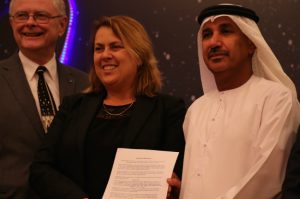
Do we really have to engage the public or educate the public? Not that it should be kept a mystery but if you drive your car and you are not an engineer, do you really need to know how it all works?
It’s an interesting analogy because in some ways the analogy is not as to whether the driver understands the engineering under the hood, it’s does the driver understand his or her dependence on paved roadways, or on fuel? In many cases, they certainly do. If you talk about a fuel shortage you instantly get lines in front of petrol stations. I think we are at that stage of helping people understand space where a lot of people don’t understand that their data highway is partially paved by space transmission. They don’t understand that their ability to navigate in their car also reflects the ability to timestamp their financial transactions or to synchronise cell towers. I have heard astronauts challenge speakers who talk about the importance of satellites to cellphone communications saying you have got to stop over promising. Cellphones don’t use satellites. They do, but not to communicate in most cases. They use them to synchronise the towers and that’s how they know where your phone is. I think that kind of education is useful.
Our job has been to focus on the gaps of information encountered by policy makers and to focus on the communications channels which haven’t yet been opened but should be open among policy makers, information providers and consumers of space services.
So you mean international policy makers?
Oh absolutely. We spend a huge amount of time outside of the U.S. And U.S. policy makers have been very interesting of late because they have been more willing to push the limits of what the outer space treaty seems to demand of countries. The Outer Space Treaty says that countries must regulate their citizens. There are only a few countries that have made it clear that they’ve done that. But we spend a lot of time in Europe, Asia, Latin America and Africa. In particular, we look forward to the Foundation growing in Africa. We really do think that this is an international challenge.
SWF is a big supporter of the Space Generation Advisory Council. What is your message to the next generation? What should they care about?
What they should keep in mind is that the space generation runs from about age 10 to age 90 in America and I think that’s true of a lot of other places in the world. That idealism they feel now is something they should not be talked out of. They need to understand that what they’re doing is extremely important in building an entire vision of a future, not simply following a career. We have spent a lot of time working with the young professional community in particular, where we think we have the best opportunity to make an impact. We provide travel awards for young professionals of 35 years and under who have had papers accepted to the International Astronautical Congress (IAC) but are too junior in their companies to travel or are not yet employed. We send anywhere from five to eight people and subsidize their travel to IAC every year so they can present their paper in person. This gives them a sense that they are part of a community, doing something important. The IAC brings together several leaders of space agencies and people who are leading space missions and companies, universities etc. Our young people have a great opportunity in attending the IAC the conversations are so rich.
I used to say, when I was president of International Space University (ISU), that ISU was founded on the three ‘I’s : International, Intercultural and Interdisciplinary However, there was a fourth ‘I’ and that was ‘Intergenerational’. The Space Generation Council has really done that as well. All people are engaged with each other. I think that one of its greatest accomplishments has been this intergenerational bonding that has shown that this young professional group is not an add-on or a group of pure mentees. They are contributors to a sector that is in desperate need for constant fresh ideas. So, part of the message is to keep in mind that before too long they will have to put the same effort in to listening to people who think they might be too young to get listened to. I think that’s become one of the dynamic elements of the space sector. It is addressing the generational divide that only exists because space is such a desirable sector that people do not want to quit. It doesn’t necessarily eliminate opportunities but we have to think about how generations respect each other, use each other and develop synergies together.
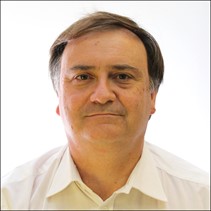
What is the message to your successor?
There’s so much going on in space policy right now and I think he’s got the right personality. Peter will do really well.
What happens to you now you have retired?
I will take on a few of the remaining meetings of 2018 and I will still be vice chair of the Space Resources Governance Working Group which has another year of work ahead of it. There is the Moon Village Association which I have been involved with and I will also keep on teaching for ISU. As of 1January 2019 I am completely retired and 12 days later I am on my way to Australia to teach in the Southern Hemisphere Space Studies Program in Adelaide!
Dr. Michael K. Simpson is the Director Emeritus of Secure World Foundation. Dr. Simpson joined SWF as the Senior Program Officer in September 2011 following seven and a half years as President of the International Space University (ISU). Dr. Simpson holds a post as Professor of Space Policy and International Law at ISU. He is a member of the International Academy of Astronautics and the International Institute of Space Law and is a Senior Fellow of the International Institute of Space Commerce. After 23 years of service, Dr. Simpson retired from the Naval Reserve in 1993 with the rank of Commander.
Dr. Simpson’s practical experience includes service as a Political Military Action Officer, observer representative to the UN Committee on the Peaceful Uses of Outer Space, participating organization representative to the Group on Earth Observations (GEO) and member of the Association of Space Explorers International Panel on Asteroid Threat Mitigation. He currently serves on the Commercial Spaceflight Safety and Space Security Committees of the International Astronautical Federation (IAF) and is a Vice Chair of the Hague Space Resources Governance Working Group. He sits on the governing board of the World Space Week Association, and is a governor of the National Space Society in the United States.
 SpaceWatch.Global An independent perspective on space
SpaceWatch.Global An independent perspective on space


